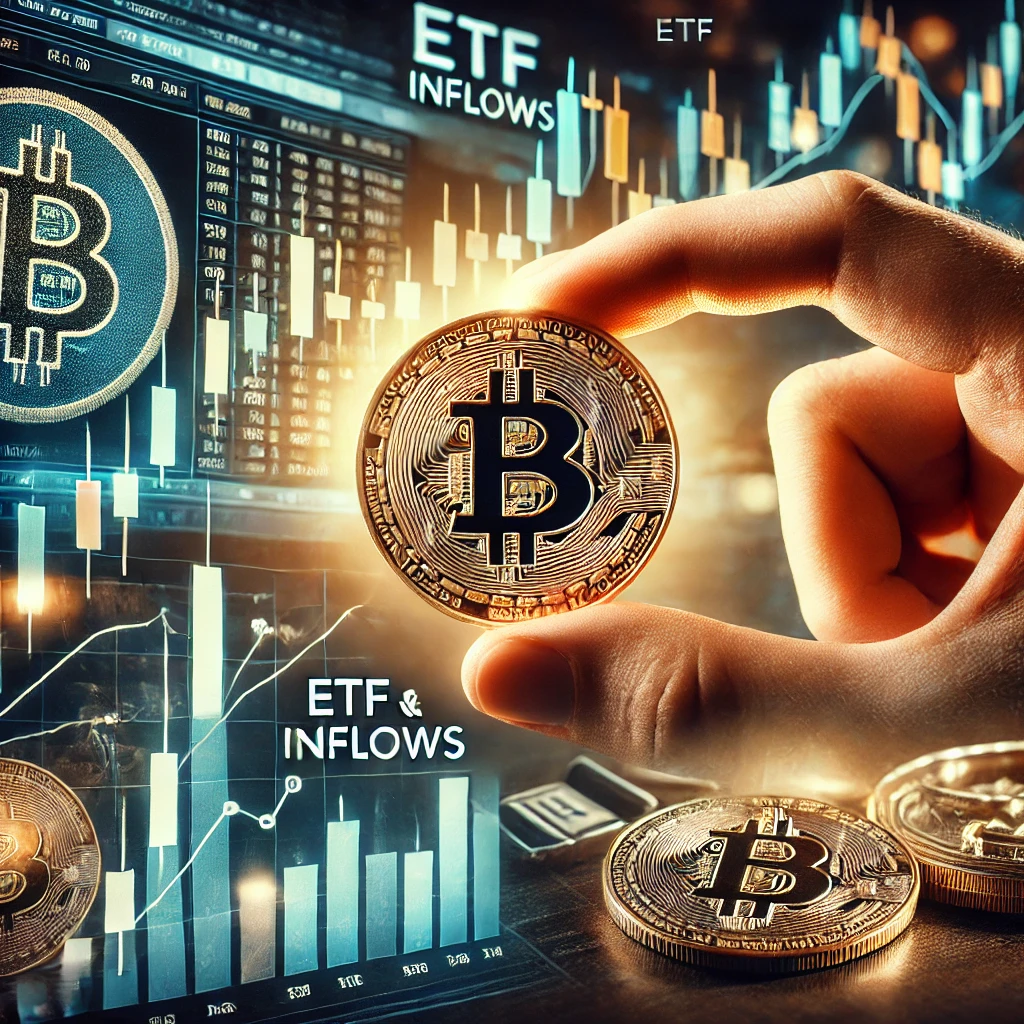Introduction
As the cryptocurrency market matures, Bitcoin investors find themselves navigating a dynamic landscape shaped by regulatory changes and the increasing popularity of exchange-traded funds (ETFs). These two key factors—regulation and ETF inflows—are set to significantly impact Bitcoin’s future, both in terms of its price and its place in the broader financial ecosystem. Investors are closely watching how these developments will affect market sentiment, institutional interest, and Bitcoin’s long-term viability as a store of value.
The Current Regulatory Landscape In The US
The regulatory environment in the US is rapidly evolving, with increased scrutiny from federal agencies like the Securities and Exchange Commission (SEC) and the Commodity Futures Trading Commission (CFTC). This push for regulation aims to protect investors and ensure market stability, especially following several high-profile cases of fraud and market manipulation in the cryptocurrency space.
In recent months, the SEC has intensified its focus on the cryptocurrency industry, proposing rules that could have far-reaching effects on how digital assets are classified and traded. Bitcoin, being the largest and most established cryptocurrency, is at the forefront of this regulatory wave. The ongoing debate centers around whether Bitcoin should be classified as a commodity, like gold, or a security, which would place it under stricter SEC oversight.
For investors, the implications are significant. Stricter regulations could limit the freedom and appeal of Bitcoin as a decentralized asset. However, some argue that regulatory clarity could benefit Bitcoin by legitimizing it in the eyes of institutional investors, leading to greater adoption and a more stable market.
ETF Inflows: A Game-Changer For Bitcoin
While regulation poses a potential challenge, the rise of Bitcoin ETFs presents an enormous opportunity for the cryptocurrency. ETFs allow investors to gain exposure to Bitcoin without the need to directly hold the asset, making it accessible to a broader range of market participants, including institutional investors who might be wary of the complexities and risks involved in holding actual Bitcoin.
The approval of Bitcoin ETFs in the US has been a long-awaited milestone, with the first Bitcoin futures ETF launched in late 2021. Since then, the market has seen significant inflows into these ETFs, with some estimating that hundreds of millions of dollars have been invested in Bitcoin through this vehicle. This has led to increased liquidity and stability in the Bitcoin market, as ETFs allow for easier trading and reduce the risks associated with holding the cryptocurrency directly, such as hacking or loss of private keys.
Investor Sentiment: A Mixed Bag
For Bitcoin investors, the current landscape presents a mixture of optimism and caution. On one hand, the influx of institutional money through ETFs is seen as a positive development, as it signals mainstream acceptance of Bitcoin as a legitimate asset class. On the other hand, regulatory uncertainty continues to weigh on investor sentiment, especially for those who value Bitcoin’s decentralized nature.
The key question on every investor’s mind is how much regulatory pressure Bitcoin can withstand without losing its core appeal. If regulations become too stringent, they could stifle innovation and discourage new entrants from participating in the market. Conversely, if regulations are too lax, they could leave investors vulnerable to fraud and manipulation, which could erode trust in the asset.
Institutional Adoption: The Next Phase
One of the most significant trends emerging from the ETF inflows is the increased interest from institutional investors. Traditionally, Bitcoin has been popular with retail investors and crypto enthusiasts, but the advent of ETFs has opened the doors for pension funds, hedge funds, and other large financial institutions to gain exposure to Bitcoin.
Institutional adoption is seen as a critical factor for Bitcoin’s long-term success. Large-scale investments from institutional players bring greater liquidity and reduce volatility, which has been one of the major criticisms of Bitcoin. Additionally, institutional involvement lends credibility to the cryptocurrency market, making it more attractive to regulators and policymakers.
Moreover, institutional investors tend to have a long-term perspective, which could help stabilize Bitcoin’s price. Rather than engaging in speculative trading, these investors are more likely to hold Bitcoin as part of a diversified portfolio, treating it as a hedge against inflation or a store of value akin to gold.
The Future Of Bitcoin In A Regulated World
As Bitcoin investors weigh the potential impact of US regulation and ETF inflows, the future of the cryptocurrency market remains uncertain but promising. On the regulatory front, much will depend on how policymakers strike a balance between protecting investors and fostering innovation. If regulators can create a framework that encourages responsible growth while preserving the decentralized nature of Bitcoin, the cryptocurrency could continue to thrive.
At the same time, the continued growth of Bitcoin ETFs is likely to attract more institutional money, further solidifying Bitcoin’s position as a mainstream asset. The combination of regulatory clarity and increased institutional adoption could create a more mature and stable Bitcoin market, which would be a welcome development for long-term investors.
Conclusion
Bitcoin investors are at a crossroads, facing both opportunities and challenges. The increasing regulatory scrutiny in the US presents a potential risk to the cryptocurrency’s decentralized ethos, but it also offers a chance for Bitcoin to gain legitimacy and attract more institutional investment. Meanwhile, the rise of Bitcoin ETFs is providing a new pathway for investors to gain exposure to the asset, driving up demand and liquidity in the market.
As the cryptocurrency market continues to evolve, investors will need to stay informed about regulatory developments and monitor the impact of ETF inflows. The road ahead may be uncertain, but one thing is clear: Bitcoin is no longer a fringe asset. It is becoming an integral part of the global financial system, and how investors navigate this new landscape will determine its future success.



